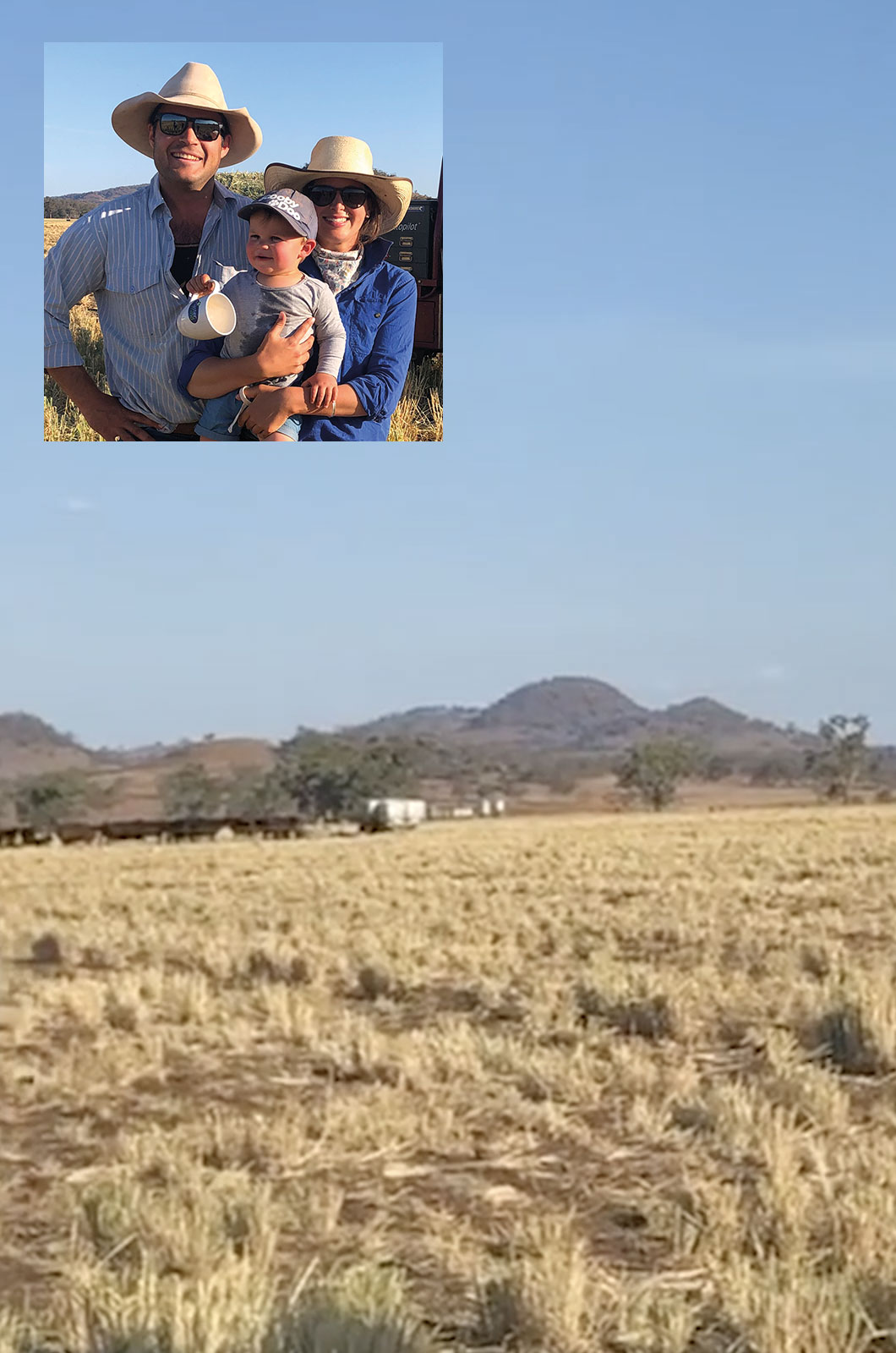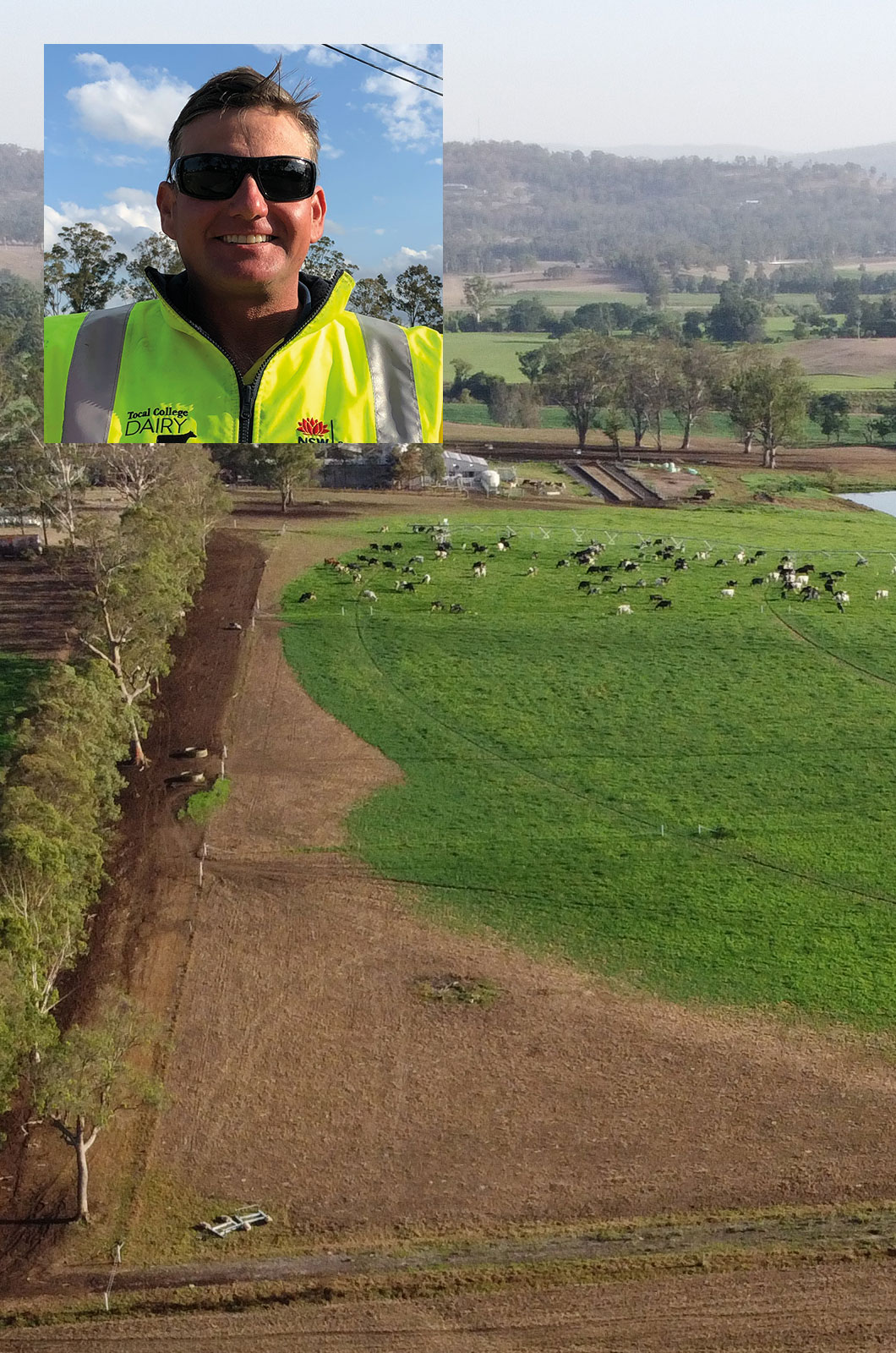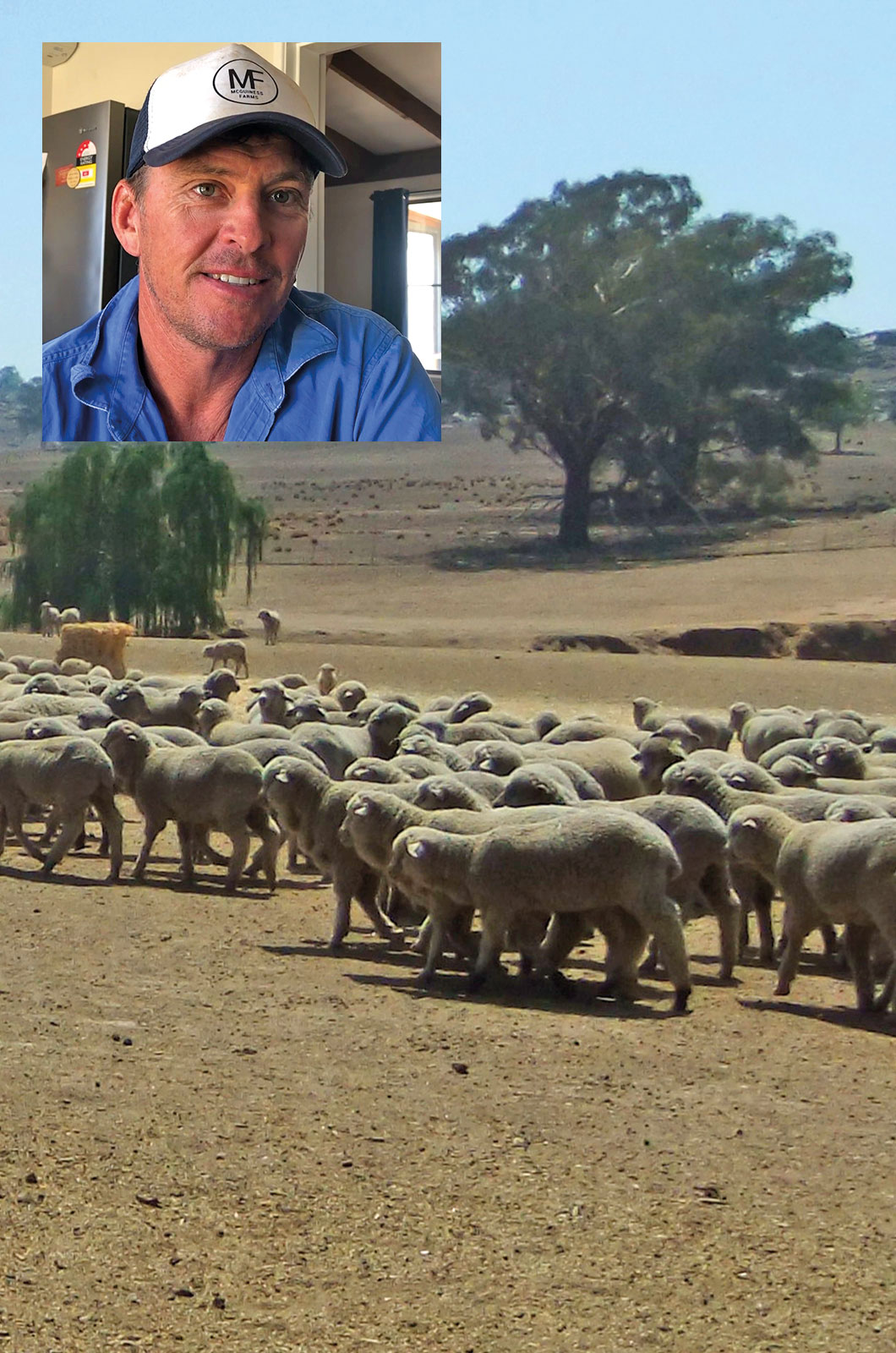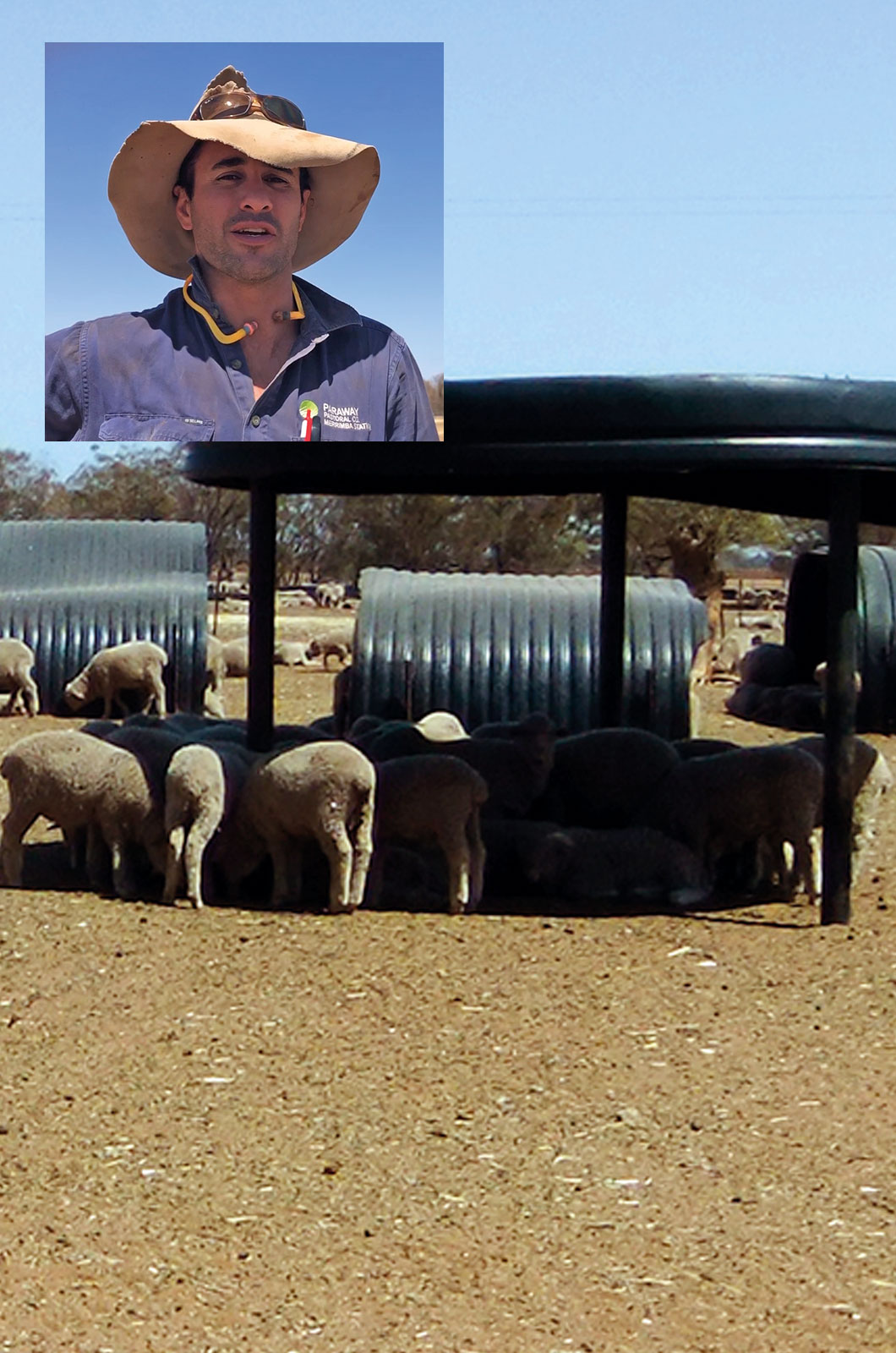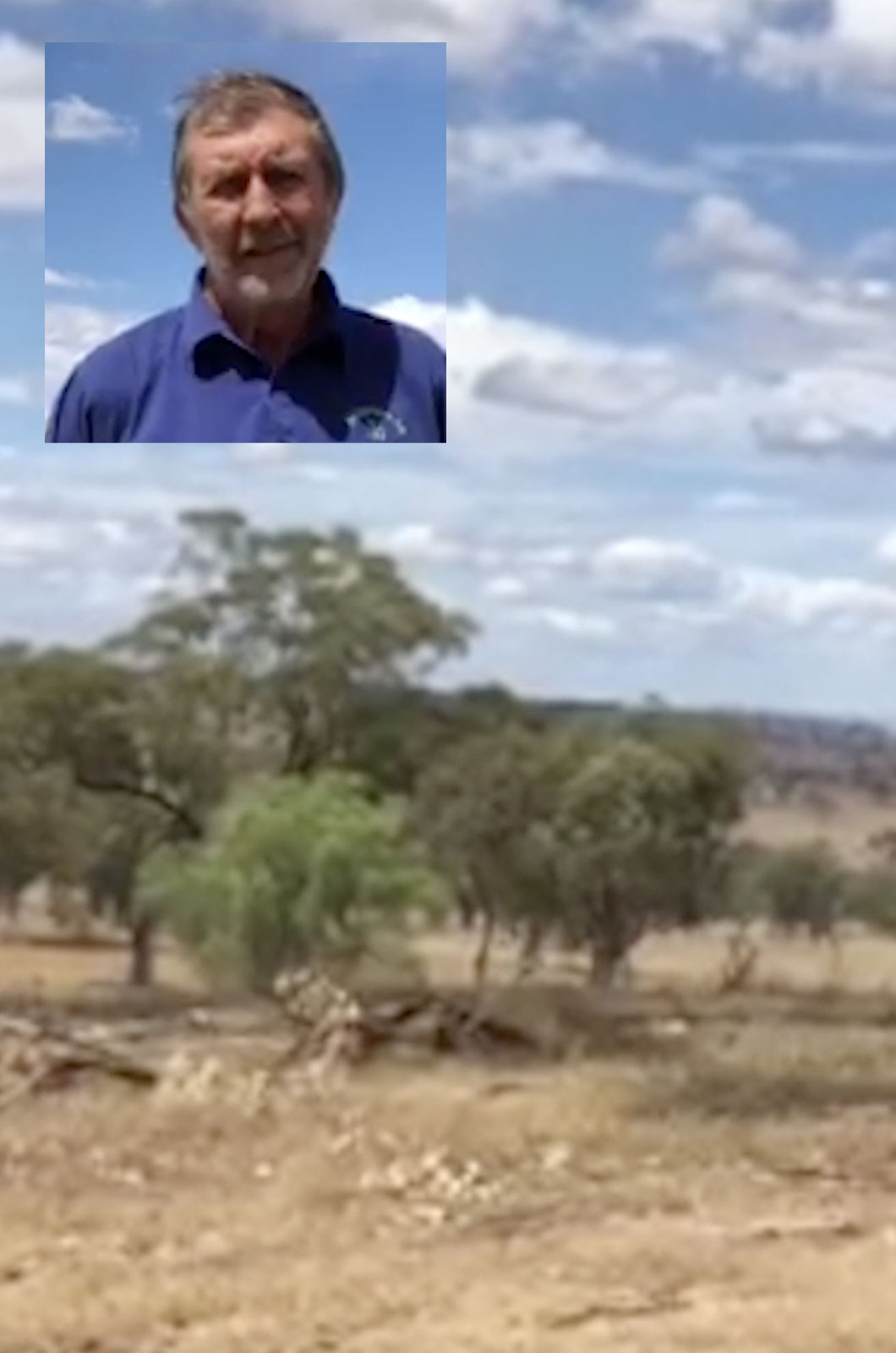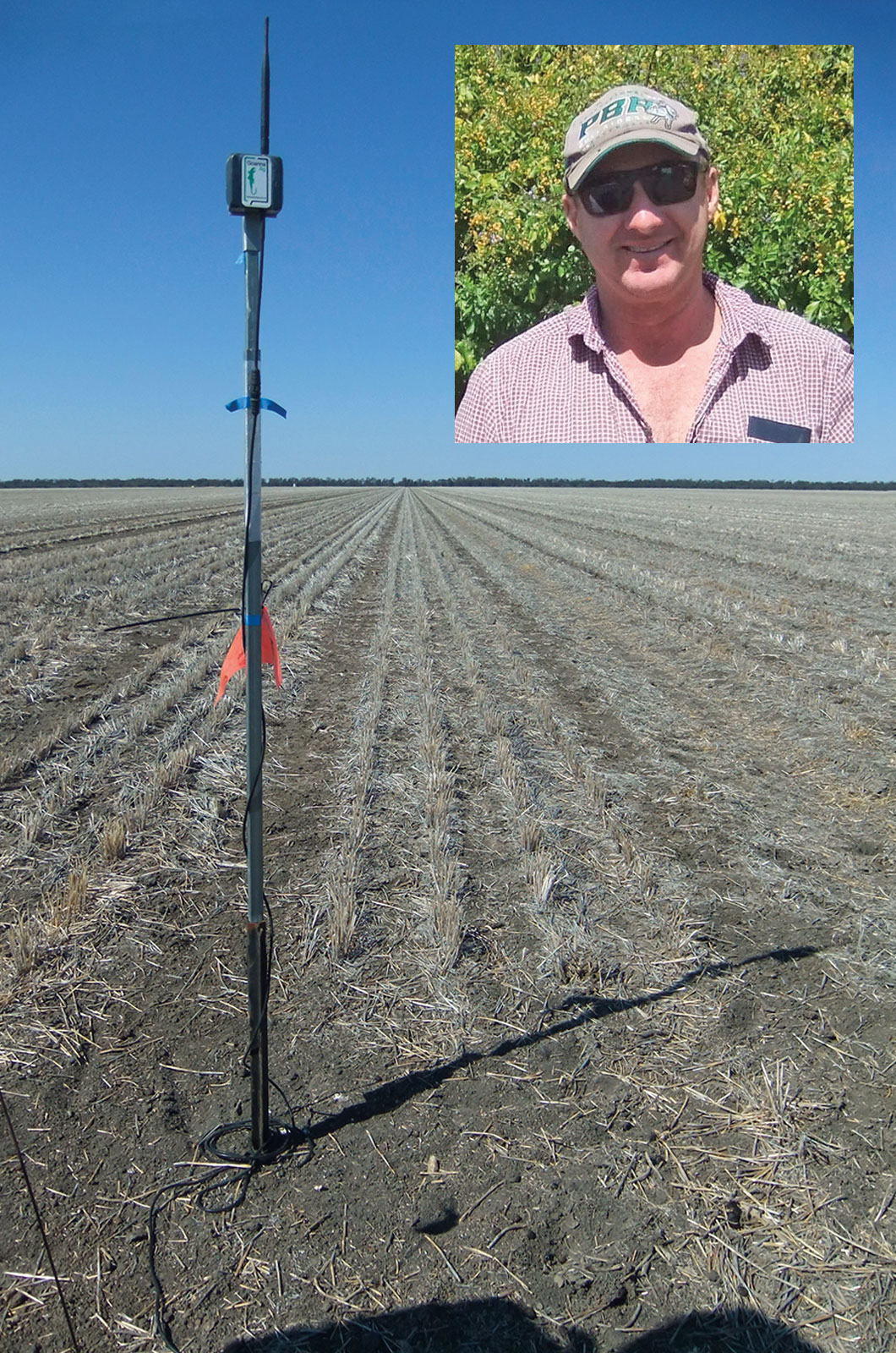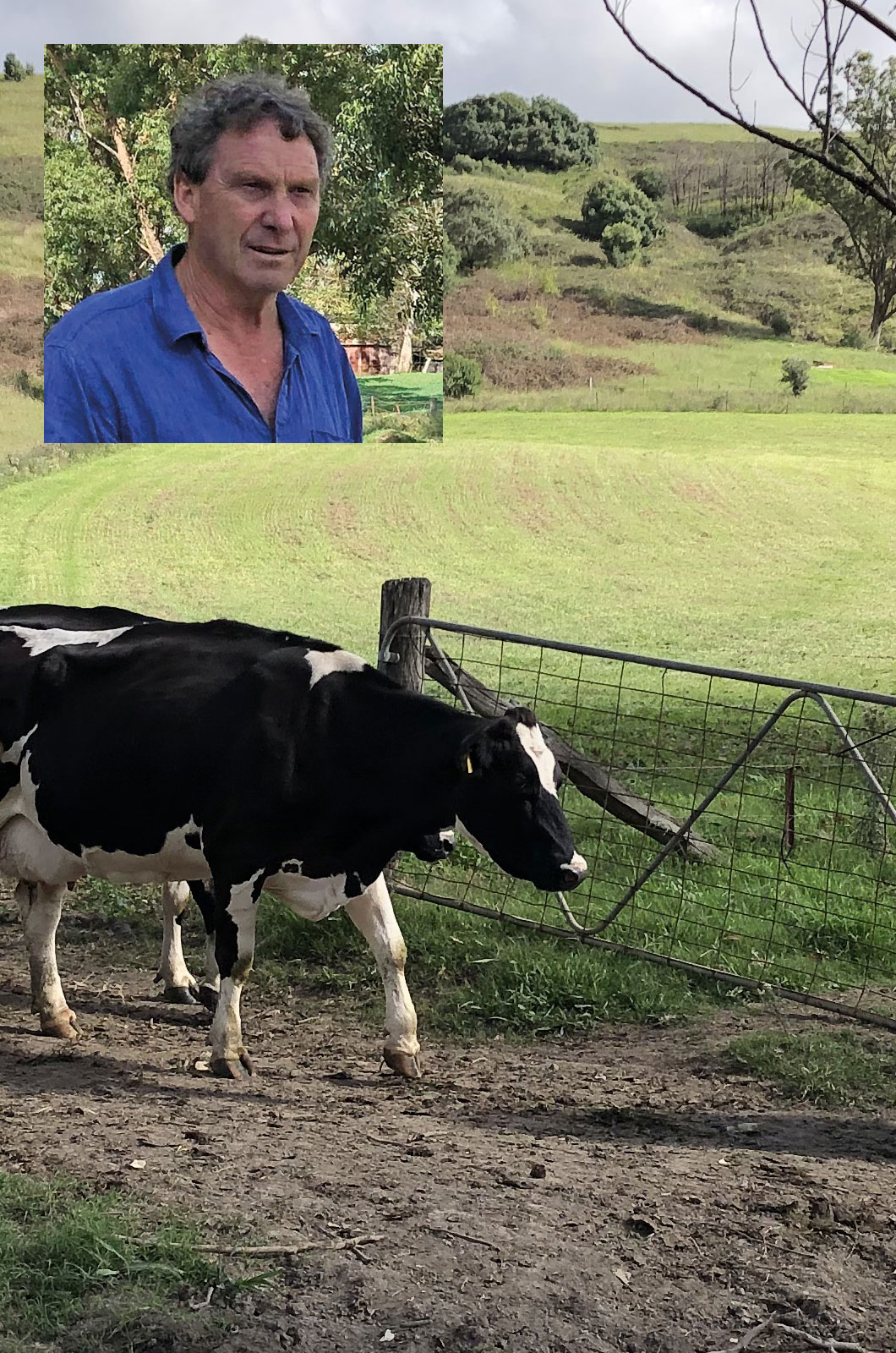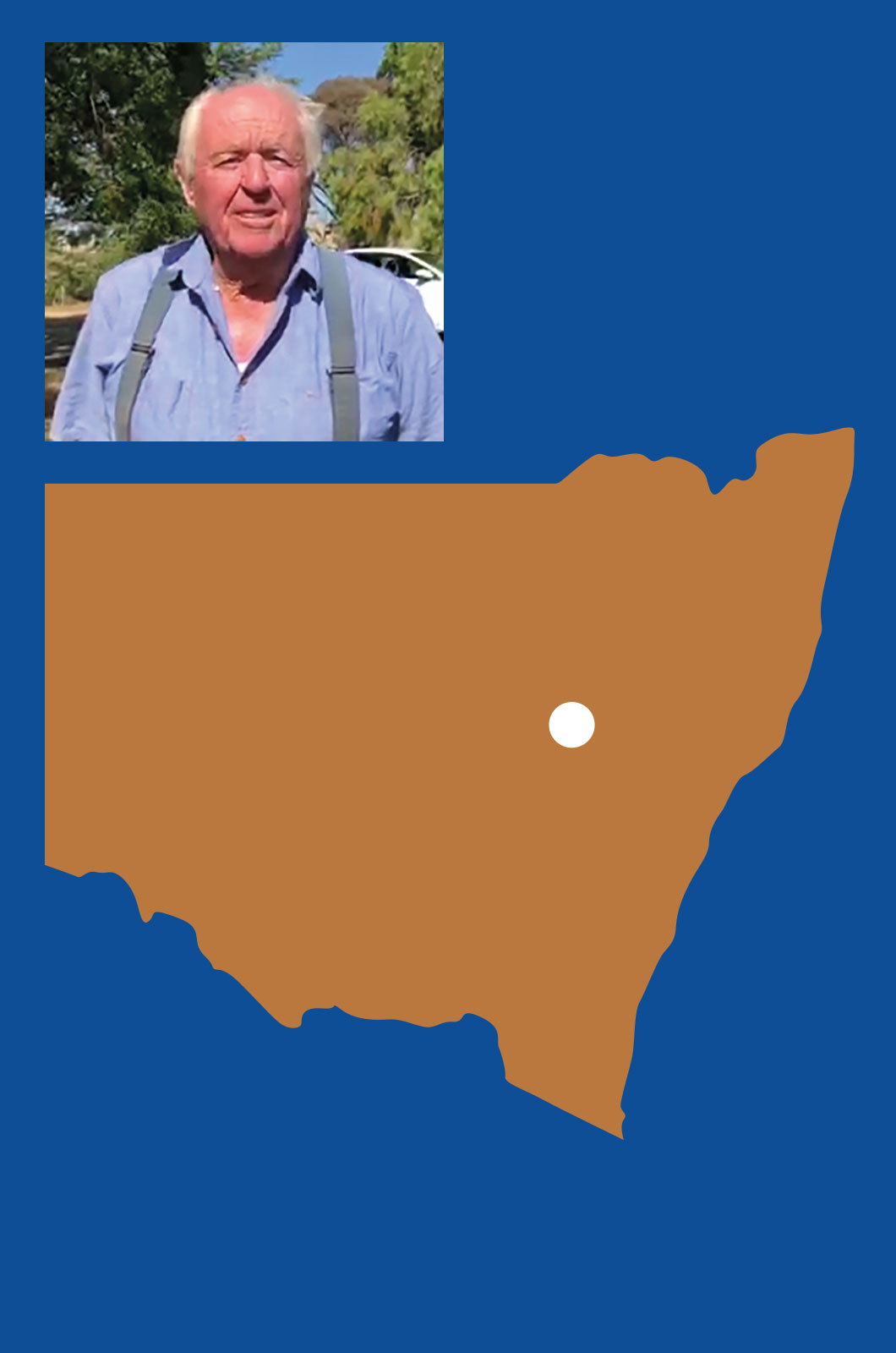 Location: Warren, NSW
Location: Warren, NSW
Owners: Jack and Grace Brennan
Jack and Grace Brennan manage Merimba Station, a 25,000 ha Merino sheep and cropping property near Warren, owned by Paraway Pastoral Company. They live on the property with their three children.
Jack spends a lot of time in the paddocks assessing the conditions. It is important that the soil is protected and that pastures and crops are not overgrazed. Kangaroos have been a problem by eating ground cover and Jack is considering exclusion fencing.
Sheep normally graze on crops including wheat, barley, chick peas, and canola. Irrigated cotton is also grown. Jack uses soil moisture probes in the paddock and telemetric probes to assess soil moisture and make decisions about sowing or grazing crops or growing them through to harvest. For sowing, the moisture should ideally be at a depth of 50 cm in the probe but the final decision also depends on the soil type, ground temperature and the particular crop in the rotation. Soil tests are factored into the rotation, usually to assess nitrogen levels after a pulse crop. The rotation is usually pulse crop, followed by cereal crop and then fallow. However, 2019 has been so dry that all the cropping area is in fallow, none has had soil moisture suitable for sowing. The crop is mainly used to feed the sheep but it is sometimes stored or sold.
In the very dry seasons with no pasture growth and cropping areas all in fallow, Jack has put lambs into drought lots so that they can be fed to gain weight for market: then they are sold. The adult sheep are locked into a sacrifice paddock for hand feeding. The sacrifice paddock is not expected to recover for crop or pasture growth. These management strategies are to preserve pasture butts and ground cover in all other parts of the property. Ground cover is important for preventing wind erosion and capturing and storing soil moisture.
Jack has built the drought lot cheaply but effectively, and with minimal equipment and labour he feeds 10,000 sheep in an hour and three quarters. He feeds the lambs but keeps a check on the costs and returns. If prices are favourable, he buys additional sheep for the drought lot.
There are two other staff members who work on Merimba, and he uses contractors for events such as lamb marking and shearing.
Jack has a range of people, such as vets, agronomists, nutritionists and analysts that he uses as a sounding board and support network to help him make decisions and stay positive. The most important of all these is his wife, Grace. He involves all the staff in the decision making and gives them credit when the business is successful.
Jack’s words of advice:
- BE PREPARED
- understand your business and account for best-case and worst-case scenarios in every decision you make
- be aware of costs and returns when you decide to feed stock
- hoping for rain is not a business plan. Manage the business in addition to managing the farm
- match stocking rate to feed available
- use the results of a soil moisture probe before planting and during crop growth. Decide if there is enough moisture to go to grain or should you use the crop another way
- realise that recovery from a drought depends on how you prepare for the drought.
Tocal newsletter
Want to find out about news, events, courses and publications?


